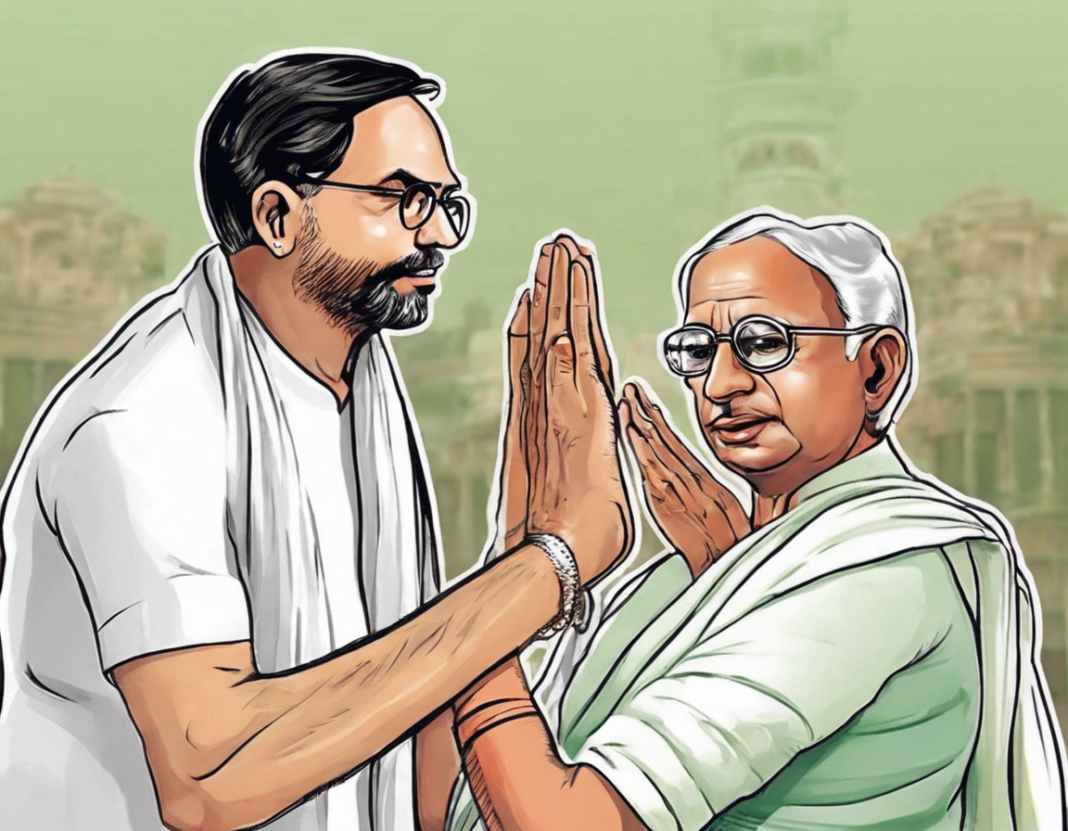In the vibrant tapestry of Indian politics, the Janata Dal (Secular), commonly known as JD(S), holds a significant position as a regional political party primarily active in the states of Karnataka and Kerala. Established in 1999 following a split from the Janata Dal party, JD(S) has witnessed its fair share of ups and downs, emerging as a key player in the political landscape of South India. This article delves into the history, ideology, and significance of JD(S) in Indian politics.
Origins and Evolution
The roots of JD(S) can be traced back to the Janata Party, a coalition of various opposition parties that came together to oppose the ruling Congress party in the 1977 general elections. Over the years, internal dissensions and differing ideologies led to the fragmentation of the Janata Dal party, resulting in the formation of JD(S) under the leadership of former Prime Minister H.D. Deve Gowda and his son H.D. Kumaraswamy.
JD(S) has positioned itself as a centrist party, advocating for regional issues and providing an alternative to the dominant national parties like the Bharatiya Janata Party (BJP) and the Indian National Congress. With a focus on agrarian and rural development, the party has garnered support from farmers, laborers, and other marginalized sections of society.
Electoral Performance
JD(S) has had a mixed track record in electoral politics. While the party has enjoyed periods of success, especially in Karnataka where it has formed coalition governments with both the BJP and the Congress, it has also faced setbacks in terms of electoral setbacks and internal conflicts. The party’s stronghold in the Old Mysuru region of Karnataka has been instrumental in its electoral victories.
One of the defining moments in JD(S)’s political history was the formation of a coalition government with the Congress party in Karnataka after the 2018 state elections. H.D. Kumaraswamy served as the Chief Minister of the coalition government, a tenure marked by internal tensions and power struggles. The government eventually fell due to defections and maneuvering by the opposition parties.
Ideology and Policies
JD(S) espouses a pro-farmer and pro-poor ideology, emphasizing the need for inclusive growth and development. The party’s policies focus on agricultural reforms, rural infrastructure, and social welfare programs. JD(S) has been a vocal advocate for the rights of farmers and has frequently criticized government policies that it deems detrimental to the agricultural community.
In terms of governance, JD(S) has emphasized decentralization and local self-governance, aiming to empower rural and semi-urban areas. The party’s leaders have often highlighted the importance of grassroots democracy and the role of Panchayati Raj institutions in decision-making processes.
Alliances and Challenges
JD(S) has navigated the complex terrain of Indian politics through strategic alliances and coalitions. The party has allied with both the BJP and the Congress at different points in time, leveraging these partnerships to gain power and influence. However, these alliances have also posed challenges, as ideological differences and power dynamics have strained relationships.
Internal challenges, including factionalism and leadership disputes, have also plagued JD(S) over the years. The party has struggled to maintain unity among its members, leading to frequent splits and realignments. Despite these challenges, JD(S) continues to play a crucial role in Karnataka politics and remains a key player in shaping regional dynamics.
Future Outlook
As India’s political landscape continues to evolve, the role of regional parties like JD(S) becomes increasingly significant. With a focus on regional issues and grassroots empowerment, JD(S) is poised to attract support from segments of society disenchanted with mainstream politics. The party’s ability to forge alliances and navigate the complexities of coalition politics will be crucial in determining its future trajectory.
In conclusion, the Janata Dal (Secular) has carved a niche for itself in Indian politics as a regional player advocating for the rights of the marginalized and promoting inclusive development. Despite facing challenges and setbacks, the party remains a key actor in the political theater of South India, influencing policies and governance in the region. As it moves forward, JD(S) will need to adapt to changing dynamics and leverage its strengths to consolidate its position in the ever-evolving world of Indian politics.
Frequently Asked Questions (FAQs)
1. What are the key regions where JD(S) holds influence?
JD(S) primarily holds influence in the Old Mysuru region of Karnataka, including districts like Mandya, Hassan, and Ramanagara.
2. Has JD(S) ever formed a government in Karnataka on its own?
No, JD(S) has mostly been part of coalition governments in Karnataka due to its limited number of seats in the state assembly.
3. How has JD(S) contributed to agrarian issues in India?
JD(S) has been a vocal advocate for farmers’ rights and has pushed for policies and programs that benefit the agricultural community.
4. What challenges have hindered JD(S)’s growth as a political party?
Internal factionalism, leadership disputes, and the need to navigate complex coalition politics have been some of the challenges faced by JD(S).
5. What is the future outlook for JD(S) in Indian politics?
The future outlook for JD(S) depends on its ability to strengthen alliances, address internal challenges, and adapt to the changing political landscape in India.









